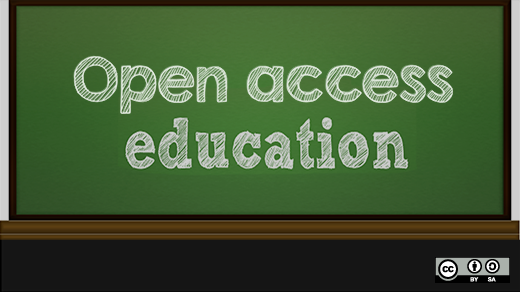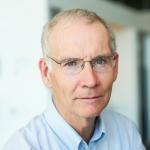I first met Stephen O’Connor, a fifth grade public school teacher at Wells Central School, at the New York State Association for Computers and Technology in Education Conference in 2007. I don’t recall the exact subject of his presentation, but I came away from his presentation with some new information that helped me implement Moodle in my classroom. He pointed me in the direction of a good hosting company that allowed me to work on Moodle, Drupal, and Wordpress development, which I was most interested in at the time.
At another of his presentations, I came away with a wealth of information about licensing content and the differences between Copyright and Creative Commons. I’ve been following Steve on Twitter for a long time, and he continues to be a great source of learning about open educational resources.
Steve teaches at an elementary, public school on a tiny hamlet in the Adirondack region of New York state. He attended the University of Rochester as an undergraduate and majored in history and East Asian Studies. He later attended Nazareth College obtaining an M.S. in Education. His contribution to open source is in the area of open educational resources (OER).
"In the past, I have gotten paid to work around OER," O'Connor said. "A couple times I got work finding and curating OER centered around certain topics. Another time, I got funding to create an openly licensed P2PU class in multimedia."
Lately the majority of his work in open content has centered around EngageNY, where he's created math and English language arts modules for implementation in his fifth grade classroom.
"I make multimedia presentations to deliver the lessons, screencasts to support parents and students with homework, and a some other ancillary materials. To me, it just made sense to share freely, so I created ccss5.com as a platform for sharing these materials," he said. "While I have not been compensated for this work, I have gotten work as a consultant/presenter for a district trying to implement the EngageNY Math Modules. I hope to find more opportunities to do similar work in the future. I also hope that my body of work leads to funding opportunities so I can extend what I have done in fifth grade to other grade levels."
When I asked Steven why he worked in OER, he said, "I feel that an education is a basic human right; therefore, by creating educational resources and giving them away, you are removing an obstacle to attaining an education. I also feel that the textbook industry has not served us well with quality materials, and I feel they have exploited schools financially."
I asked Steven what it is about OER that invites his continued involvement. And, he says, "While I am sometimes disappointed by the lack of feedback that I receive, I know that hundreds of teachers are using my resources. That means my work benefits thousands of children." I asked him how he got interested in open educational content in the first place, and he responds:
"My interest in OER stemmed from my work with the open source social networking platform Elgg. I also benefitted from open licensed, server-based software such as WordPress and Joomla. K12 Handheld’s owner, Karen Fasimpaur, brought OER to my attention, saying that she was dedicating her efforts in that area. Around the time I began conversing about OER with Karen, I started reading the work of Larry Lessig, one of the founders of Creative Commons. His advocacy for a culture of sharing struck a chord, especially because I benefited from openly licensed software. About the same time, I became familiar with the work of Clay Shirky, author of Here Comes Everybody. His writing solidified notions I already had about spending one's time creating, rather than consuming, content.”
When asked what he sees as the greatest need in open content today he, he responds enthusiastically:
"A lot of OER has been disjointed, particularly in mathematics, a field that demands coherence. This has recently changed with New York State Education Department’s bold entry into openly licensed curriculum with the EngageNY mathematics and English language arts modules. I think making and sharing derivative materials based upon the modules will result in open educational resources that will really be used. Many of those involved with OER get the sense that their resources are not being utilized. I think the modules have changed this, so this is a good area to direct resources.”
He continues, "I was recently contacted by New York State Education Department regarding my work with the mathematics modules. In the course of the discussion, I was told that I was doing exactly what they hoped would be done with the modules, but I was the only one they knew who was doing it. I think those funding OER creation would be wise to harness the widespread use of the modules all around the country."
When I asked Steve how he licenses his content, he says, "Since most of my current work is making derivative materials from the EngageNY Modules and they are licensed CC BY-NC-SA, I must license anything I make from them the same way. I have come to prefer CC-BY myself."







2 Comments